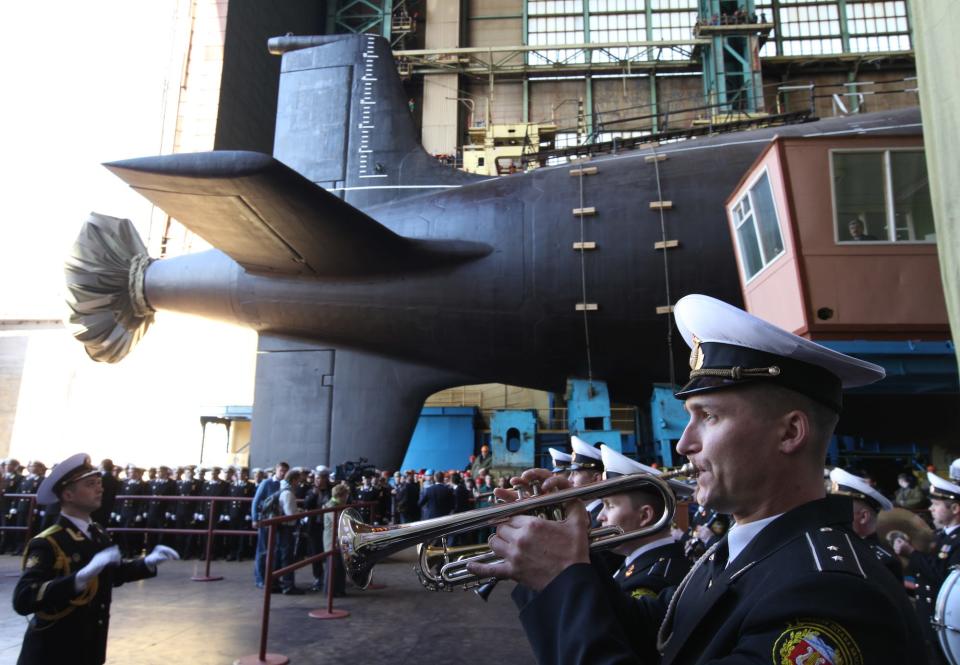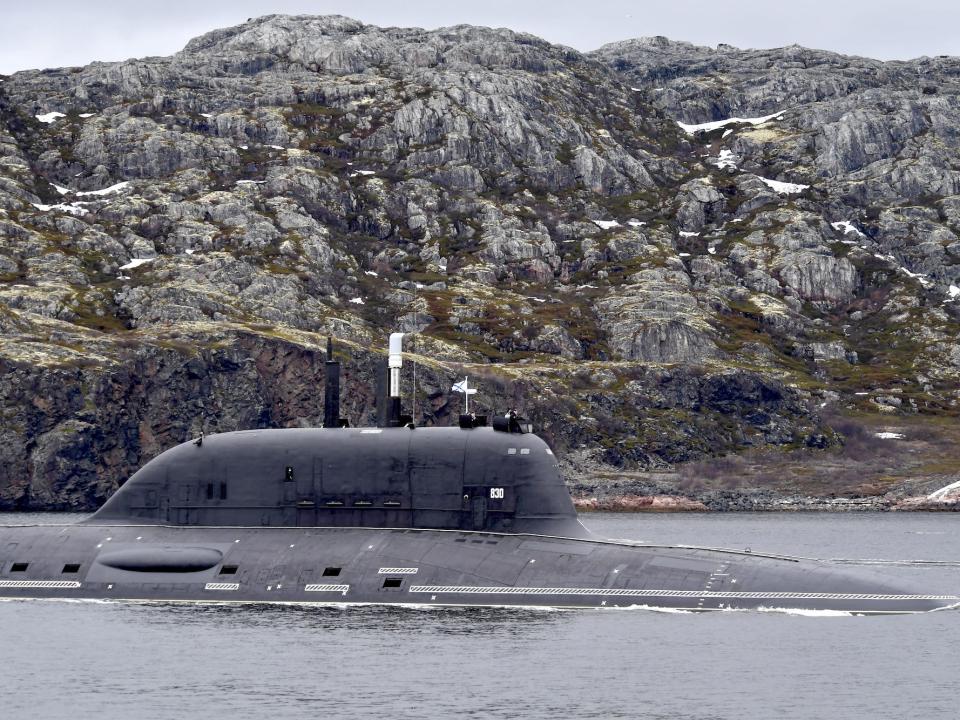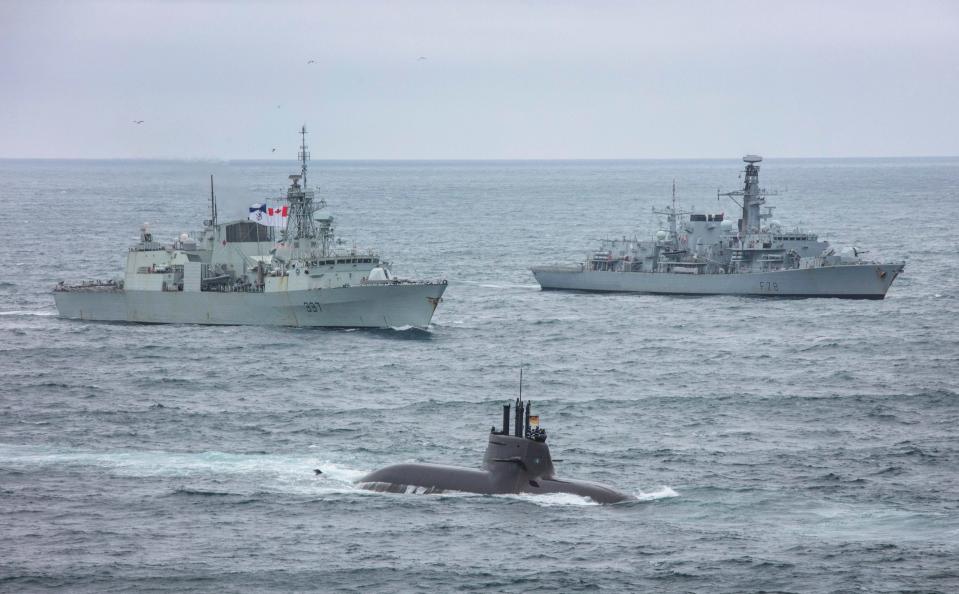Russia may build even more of the Yasen-class submarines that have impressed and worried NATO for years
Despite high-profile losses, Russia's navy has been largely untouched by the war in Ukraine.
Russian submarines, especially Yasen-class cruise-missile subs, are a top concern for NATO.
Russia may expand the Yasen-class program, with reports indicating three more subs will be built.
Russia's navy has been largely untouched by the war in Ukraine, despite high-profile losses, and Moscow plans to continue investing in it, including by building more of the Yasen-class submarines that have become a top concern for NATO.
It took two decades to build Russia's first Yasen-class sub, called Severodvinsk, which entered service in 2013, but the pace has picked up, with two more entering service in 2021 and the fourth expected to join the fleet this month. Five more have been launched or are under construction.
A Russian defense industry source told state media outlet Tass in mid-2022 that Moscow was considering adding two more subs to the nine Yasen-class subs it had planned to build. In November, however, a source "close to" Russia's navy said the plan had expanded, telling Tass that three additional subs were expected to be built.
The expansion would allow Russia's navy to assign six subs each to its Northern and Pacific fleets, according to the Tass report, which said the plan had not been officially confirmed.

Submarines are a relative bright spot in Russia's recent naval modernization efforts, and the Yasen class, which are designated nuclear-powered cruise-missile submarines, has a number of features that worry NATO commanders.
The subs built after Severodvinsk are Yasen-M submarines and have several upgrades, which appear to include improved sonar and a reactor that is smaller and quieter than earlier models. Western officials are perhaps most concerned by the subs' ability to launch land-attack and anti-ship cruise missiles, a relatively new capability that they worry could allow the subs to approach and strike valuable targets in Europe and North America.
The challenge presented by the Yasen class' ability "to deploy undetected within cruise-missile range of our coastlines" will be compounded when the Zircon hypersonic cruise missile is added to its arsenal, Gen. Glen VanHerck, who oversees military operations around North America as head of US Northern Command, told lawmakers in early 2022.
A Russian shipbuilding official said this summer that efforts to arm Yasen-M subs with Zircon missiles were "already underway."

VanHerck, who has said Yasen-class subs are "on par with ours," is one of several officials who have expressed respect and concern for those submarines.
In 2014, the officer responsible for submarines at US Naval Sea Systems Command said he was so impressed with the Severodvinsk that he put a replica in his office. In 2022, Ine Eriksen Søreide, Norway's defense minister from 2013 to 2017, said she brought a picture of the sub to her first meeting with US Defense Secretary Jim Mattis because it was "so important for us to convey to the US that this was really one of the big strategic challenges that we saw."
Pentagon officials told CBS News in 2018 that Severodvinsk had been able to sail into the Atlantic and evade attempts to find it for weeks — an account echoed this year by a British defense official, speaking under Chatham House rule, who said at an event in Washington DC that NATO forces frequently lose track of Yasen-class subs while they're at sea.
VanHerck and other military leaders have also warned about increased Russian submarine activity near the US. In January, Adm. Michael Studeman, who retired as commander of the Office of Naval Intelligence in July, said that Yasen-class subs were patrolling in the Atlantic and one had been assigned to Russia's Pacific Fleet, which meant the subs would soon pose "a dual-flank challenge" to the US.

Despite technological advances, Russia's submarine fleet is smaller than its Soviet predecessor, and NATO officials say their forces retain an advantage in undersea warfare. NATO navies have also stepped up their training for anti-submarine warfare in recent years, and the US Navy is making its subs unusually visible in the North Atlantic, demonstrating their presence in waters that Russian subs would have to traverse to reach the wider Atlantic.
The state media report on the expansion of the Yasen-class program comes alongside a dramatic increase in Russian defense spending, which is expected to almost double year-over-year in 2024. After significant losses among Russian land forces in Ukraine, that spending increase shows Moscow is focused on rebuilding a military that already has plenty of weapons with which to threaten NATO.
"I see nothing that's going on in the Russian naval maritime forces at the moment that tells me that they have significantly degraded their major capabilities," Adm. Ben Key, the British navy's highest-ranking officer, said at an event in October.
"Their nuclear submarine fleet has not been affected by what's gone on to the war in Ukraine," nor have their long-range aviation fleet or their strategic nuclear forces, Key added. "So their ability to offer a very real threat to NATO, to Western forces, is absolutely there."
Read the original article on Business Insider


